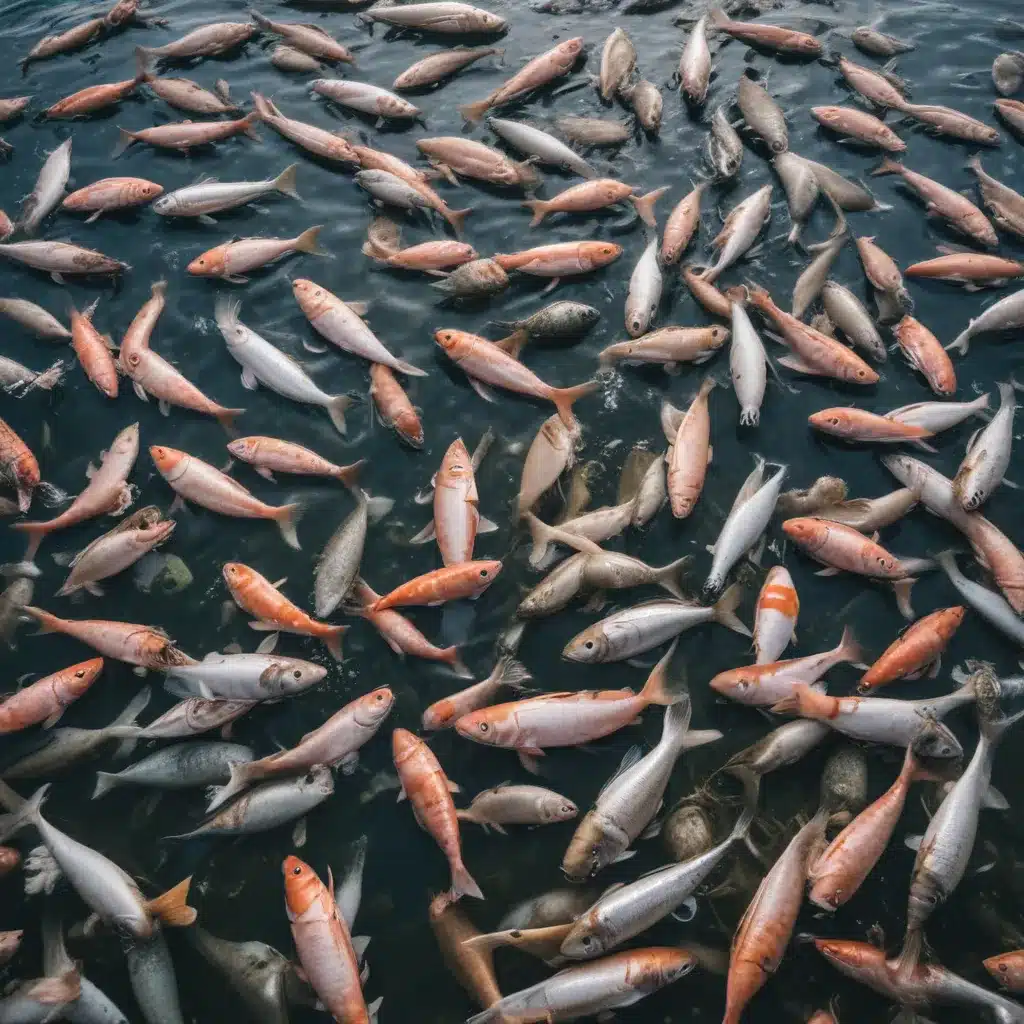
The Cook Islands, nestled in the heart of the Pacific Ocean, are renowned for their rich cultural heritage and deep connection to the sea. As a seasoned cultural historian and curator, I am honored to share insights into the sustainable fishing and aquaculture practices that have been the backbone of this island nation for generations.
Safeguarding the Blue Frontier
The Cook Islands’ relationship with the ocean is one of reverence and stewardship. Surrounded by the vast expanse of the Pacific, the people of these islands have long understood the importance of preserving the delicate balance of their marine ecosystems. This ethos of sustainability is reflected in their fishing and aquaculture practices, which have evolved over centuries to ensure the continued abundance of their aquatic resources.
Sustainable Fishing Practices
Fishing has been a way of life for the Cook Islanders, and they have developed a deep understanding of the ocean’s rhythms and the migratory patterns of its inhabitants. Traditional fishing methods, such as the use of hand-woven nets and intricate canoe designs, have been passed down through generations, ensuring a minimal impact on the marine environment.
One particularly noteworthy practice is the implementation of ra’ui, a system of temporary fishing bans or closures that allow certain areas to rest and replenish their stocks. These ra’ui zones are carefully monitored and enforced by the local community, ensuring that the delicate balance of the ecosystem is maintained.
Moreover, the Cook Islanders have embraced modern sustainable fishing techniques, such as the use of long-lines and selective gear, which minimize bycatch and reduce the impact on non-target species. By working closely with local and international organizations, the Cook Islands have also taken a leading role in combating illegal, unreported, and unregulated (IUU) fishing, a global challenge that threatens the health of the world’s oceans.
Aquaculture: A Sustainable Solution
Alongside their traditional fishing practices, the Cook Islanders have also embraced the potential of aquaculture to meet the growing demand for seafood while relieving pressure on wild fish populations. Aquaculture in the Cook Islands is not merely a commercial venture but a carefully curated endeavor that aligns with the islands’ ethos of sustainability.
One shining example is the cultivation of tilapia, a hardy and versatile freshwater fish, in inland ponds and tanks. These aquaculture systems are designed to minimize waste, conserve water, and promote the natural cycling of nutrients, ensuring that the environmental impact is kept to a minimum.
Moreover, the Cook Islands have explored the potential of seaweed farming, a practice that not only provides a sustainable source of food and income but also plays a vital role in maintaining the delicate balance of the marine ecosystem. By cultivating species like Kappaphycus alvarezii and Gracilaria, the Cook Islanders are contributing to the restoration of coral reefs and the enhancement of biodiversity.
Embracing a Blue Transformation
The Cook Islands’ commitment to sustainable fishing and aquaculture practices is part of a larger vision known as the “Blue Transformation,” a holistic approach to managing and preserving the health of the world’s oceans. This transformative strategy, championed by the Food and Agriculture Organization (FAO) of the United Nations, aims to ensure that aquatic food systems continue to feed the growing global population while safeguarding the marine environment.
The Cook Islands have wholeheartedly embraced this Blue Transformation, aligning their policies and practices with the FAO’s guidelines for sustainable aquaculture and small-scale fisheries. By adhering to international norms and agreements, such as the Agreement on Port State Measures, the Cook Islands have demonstrated their unwavering commitment to combating illegal, unreported, and unregulated (IUU) fishing, a scourge that threatens the very foundations of their marine-based economy and way of life.
Investing in the Future
The Cook Islands’ dedication to sustainable fishing and aquaculture is not just a matter of environmental stewardship; it is a strategic investment in the long-term prosperity and resilience of their island nation. By nurturing these practices, the Cook Islanders are safeguarding their food security, supporting local livelihoods, and ensuring that future generations can continue to enjoy the bounty of the ocean.
The Cook Islands Library and Museum, a hub of cultural preservation and education, plays a crucial role in this endeavor. Through its extensive collection of artifacts, historical records, and interactive exhibits, the museum showcases the islands’ rich maritime heritage and the innovative ways in which the local community has adapted to the challenges of a changing climate and growing global demand for seafood.
Visitors to the Cook Islands can immerse themselves in this captivating narrative by participating in educational programs, guided tours, and hands-on experiences that highlight the sustainable practices that have sustained the islands’ way of life for centuries. By engaging with the local community and supporting their efforts, visitors can become active stewards of the Cook Islands’ marine resources, contributing to the preservation of this unique and resilient island culture.
Conclusion: A Beacon of Hope
The Cook Islands’ commitment to sustainable fishing and aquaculture practices serves as a beacon of hope in a world that is grappling with the complex challenges of ensuring food security and protecting the health of our oceans. Through their innovative approaches, unwavering dedication, and deep cultural connection to the sea, the people of the Cook Islands have demonstrated that it is possible to strike a delicate balance between the needs of humanity and the preservation of the natural world.
As a cultural historian and curator, I am honored to share the remarkable story of the Cook Islands, a testament to the power of traditional knowledge, community-driven conservation, and a steadfast commitment to a sustainable future. By learning from the example set by these resilient islanders, we can all play a role in shaping a world where the bounty of the ocean is cherished, protected, and shared for generations to come.

